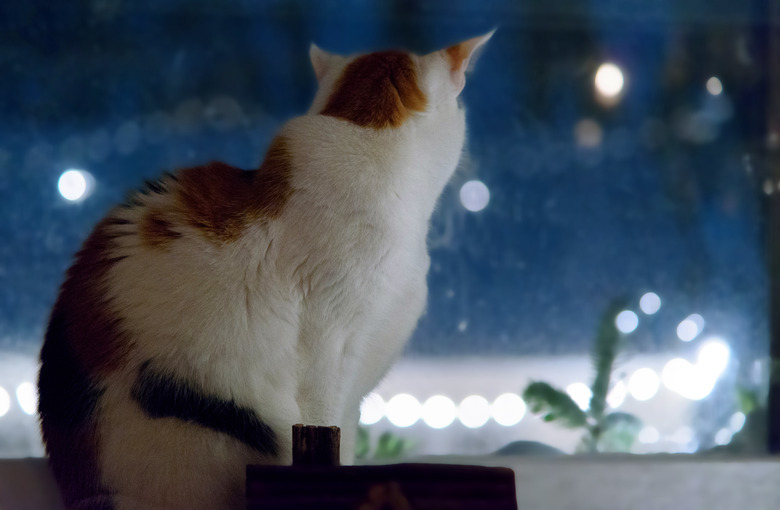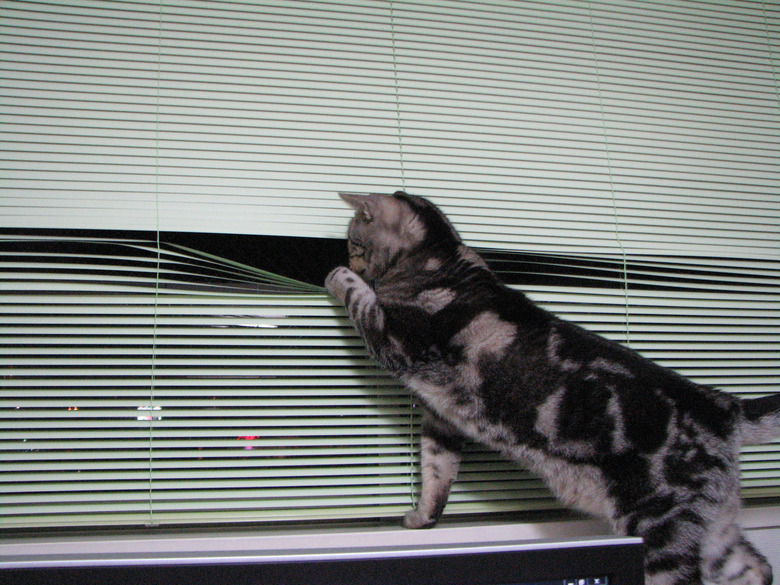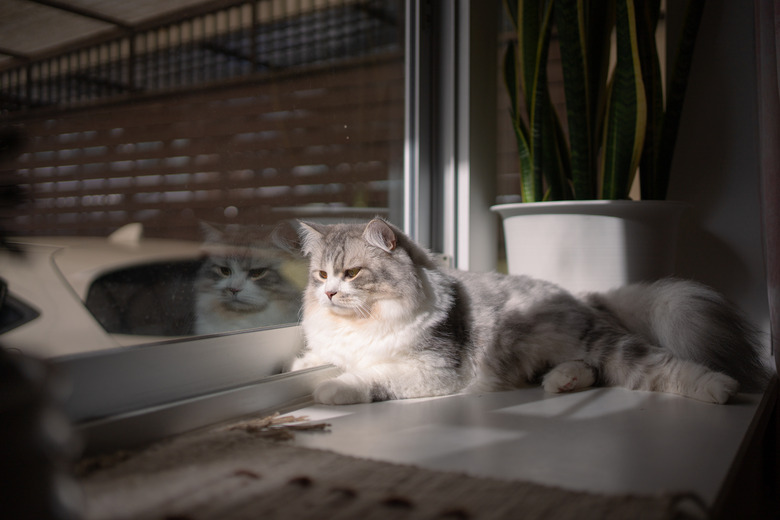Can Cats Have Insomnia?
Your cat has been staying up late recently. Or, perhaps they are unable to get to sleep at a decent hour. Maybe they're having trouble sleeping in the middle of the night. You're worried that your cat may have a medical problem or a sleep disorder — and you hope to figure out how to help your cat. It can be helpful to learn more about cat sleep patterns and cat insomnia, and then decide whether you should reach out to your veterinarian.
What are normal cat sleep patterns?
What are normal cat sleep
patterns?
Typically, cats sleep between 12 and 16 hours per day. Some may sleep up to 18 hours per day, or even longer, especially as they get older. Senior cats might sleep up to 20 hours per day.
Cats have a polyphasic sleep pattern. This means they sleep many times throughout the day instead of for one long stretch at night, like people tend to do. Usually, a cat will nap for an average of 78 minutes. But, they could nap for anywhere between 50 and 113 minutes at a time.
Since cats are crepuscular, meaning they have two peak periods of activity — one in the early morning before the sun comes up, and one around sunset. This is different from humans, who have a diurnal sleep cycle. Humans are typically awake during the day and then asleep at night.
When cats are sleeping, they experience non-rapid eye movement. This is called non-rapid eye movement or, NREM. They also have rapid-eye movement, or REM sleep, just like humans. If cats are in non-rapid eye movement, they lightly sleeping and may get up more easily. When they are in rapid-eye movement sleep, they may twitch or go completely limp — since they are in a deep sleep.
Can cats have insomnia?
Can cats have insomnia?
Yes, cats can have insomnia. However, your cat may be staying up late or waking in the middle of the night because of an underlying issue.
You also may be mistaking a normal cat sleeping pattern for insomnia. Cats have a lot of energy before sunrise; it's totally normal for your cat to start meowing early in the morning. It doesn't mean they're an insomniac.
What are some cat sleep disorders?
What are some cat sleep
disorders?
Your cat could be experiencing a medical problem like a sleep disorder. The two major ones are narcolepsy and cataplexy. Your cat might collapse out of nowhere if they have narcolepsy. Or, they can be alert but unable to follow motion with eye movements if they have cataplexy. It's critical to talk to your veterinarian right away if you notice your cat is experiencing any of these issues.
Other medical problems that could cause insomnia
Other medical problems that
could cause insomnia
Aside from a sleep disorder, your cat could have sleep apnea, where they stop breathing during sleep due to a blocked airway. Sleep apnea is a serious condition that can lead to a stroke, type 2 diabetes, and daytime sleepiness. Breeds that are brachycephalic and have short and flat faces, (like Persian cats) are more likely to suffer from sleep apnea. Changing your cat's diet and reducing your cat's stress could help improve sleep apnea.
Your cat might be unable to snooze because they have fleas. They may be up all night scratching themselves. Putting your cat on a regular flea treatment regimen may be the answer.
It's important to treat your cat's mental health issues as well. Your cat may be anxious or stressed, so make sure you cuddle them (if they like that). Ensure they get enough playtime throughout the day, and they have a litter box they like to use. Investing in a good cat bed is a good idea, too. Putting your cat's litter box and bed in a private area could help if they are stressed out.
Unfortunately, your cat could be experiencing some other type of pain or illness. As soon as you notice any changes in your cat's sleep patterns, be in touch with your veterinarian.
The bottom line
The bottom line
Your cat may be experiencing insomnia for a variety of reasons. Because cats have distinct sleeping patterns, it's important to distinguish between a medical problem and a normal sleeping schedule. Then, you'll know whether or not you should contact your veterinarian as soon as possible.


